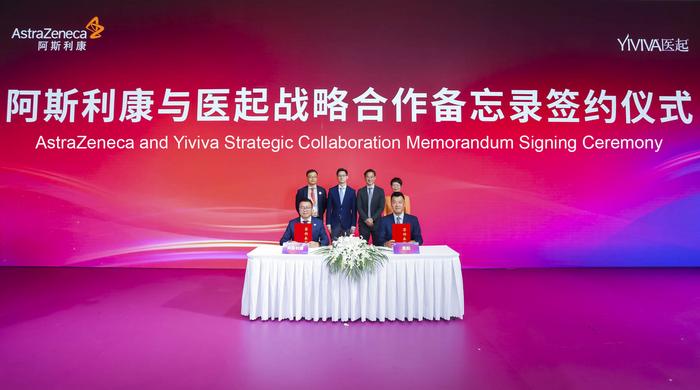The National Foundation for Cancer Research (NFCR) proudly celebrates the outstanding contributions of Dr. Yung-Chi Cheng, the Henry Bronson Professor of Pharmacology and Medicine at Yale University. Dr. Cheng’s relentless dedication over the past three decades has led to an experimental botanical drug, YIV-906, to enter various phase II human trials and establishing a now clinical-stage platform biotechnology company committed to developing groundbreaking medicines targeting cancer and aging-related diseases.

Credit: Yiviva
The National Foundation for Cancer Research (NFCR) proudly celebrates the outstanding contributions of Dr. Yung-Chi Cheng, the Henry Bronson Professor of Pharmacology and Medicine at Yale University. Dr. Cheng’s relentless dedication over the past three decades has led to an experimental botanical drug, YIV-906, to enter various phase II human trials and establishing a now clinical-stage platform biotechnology company committed to developing groundbreaking medicines targeting cancer and aging-related diseases.
NFCR has been a vital and steadfast supporter of Dr. Cheng’s pioneering work, providing more than $2.5 MM since 1991 for academic grant funding and seed investments to advance his research endeavors and launch YIV-906. This sustained support has enabled Dr. Cheng to push the boundaries of cancer research and lay the foundation for Yiviva’s transformative work.
Dr. Cheng’s lab is taking a systems biology approach to treating cancer and has developed an experimental botanical drug, YIV-906, that could improve cancer treatment. This new agent was inspired by an ancient botanical medicine. Early testing shows that YIV-906 helps boost the body’s own immune response against tumors by acting as an immunomodulator in the tumor microenvironment and enhancing innate and adaptive immunity. YIV-906 also helps to shield the digestive system from the harsh side effects of other cancer drugs by cytoprotecting the gastrointestinal tract. Yiviva is now studying YIV-906 in a randomized, placebo-controlled trial for liver cancer patients who have hepatitis B. In this phase IIb study, patients take YIV-906 together with the drug sorafenib, which attacks tumors directly.
In addition, YIV-906 could increase the therapeutic index for a broad spectrum of cancer regimens, including chemotherapy, immunotherapy, and/or radiation, to treat solid tumors – including liver, pancreatic, colorectal, rectal, non-small cell lung cancer and melanoma. Initial clinical results demonstrate how YIV-906 enhances the efficacy and improves the safety of other treatments by acting as an immunomodulator in the tumor microenvironment and cytoprotector in the gastrointestinal tract. YIV-906 primes the tumor microenvironment and then enhances both innate and adaptive immunity to attack the cancer cells. By leveraging the polychemical nature of medicinal plants and their ability to target multiple sites, this first-of-its-kind agent takes a promising scientific approach to adjuvant cancer care. Yiviva aims to improve cancer patient outcomes by developing YIV-906 as a natural booster to standard medical therapies that prolongs survival and improves quality of life.
A Multi-National Company, AstraZeneca China, has partnered with Dr. Cheng and his collaborator Yiviva to develop systems biology platforms and innovative botanical medicines to address global unmet medical needs. Together, they aim to accelerate drug discovery by gaining insights from experience-based, traditional botanical medication through cutting-edge science.
This approach perfectly fits Dr. Cheng’s vision of fusing Western and Eastern approaches into “WE Medicine.” It brings together the best of both worlds. Scientists from this partnership will study medicinal plants and design multi-targeted drugs. They hope to develop evidence treatments that treat patients holistically by teaming together. This blending of ancient wisdom and futuristic methods has great promise to address diseases impacting people globally.
NFCR congratulates Dr. Cheng and his collaborators on this remarkable recognition. “Dr. Yung-Chi Cheng’s achievements are a testament to the impact of sustained support for innovative research. NFCR is proud to have played a role in supporting his groundbreaking work, and we are excited to see Dr. Cheng’s strategic collaboration with AstraZeneca because of this collective effort,” said Dr. Sujuan Ba, President and CEO of the National Foundation for Cancer Research.
Dr. Yung-Chi Cheng, the Henry Bronson Professor of Pharmacology and Medicine at Yale University, expressed gratitude for the enduring support from NFCR, stating, “The contributions from NFCR have been instrumental in propelling our mission forward. With this continued support, we look forward to advancing our pipeline of innovative medicines to benefit patients worldwide.”
About NFCR:
The National Foundation for Cancer Research (NFCR) is a 501(c)(3) nonprofit organization that provides scientists in the lab the funding they need to make game-changing discoveries in cancer treatments, detection, prevention and ultimately, a cure. NFCR has distinguished itself in the cancer research sector by emphasizing long-term, transformative research often overlooked by other major funding sources. With the help of more than 5.3 million individual donors over the last 50 years, NFCR has provided $410 million in funding to cancer research, prevention, and public education leading to some of the important, life-saving discoveries that benefit patients today. For more information about NFCR and its mission, please visit www.nfcr.org.




